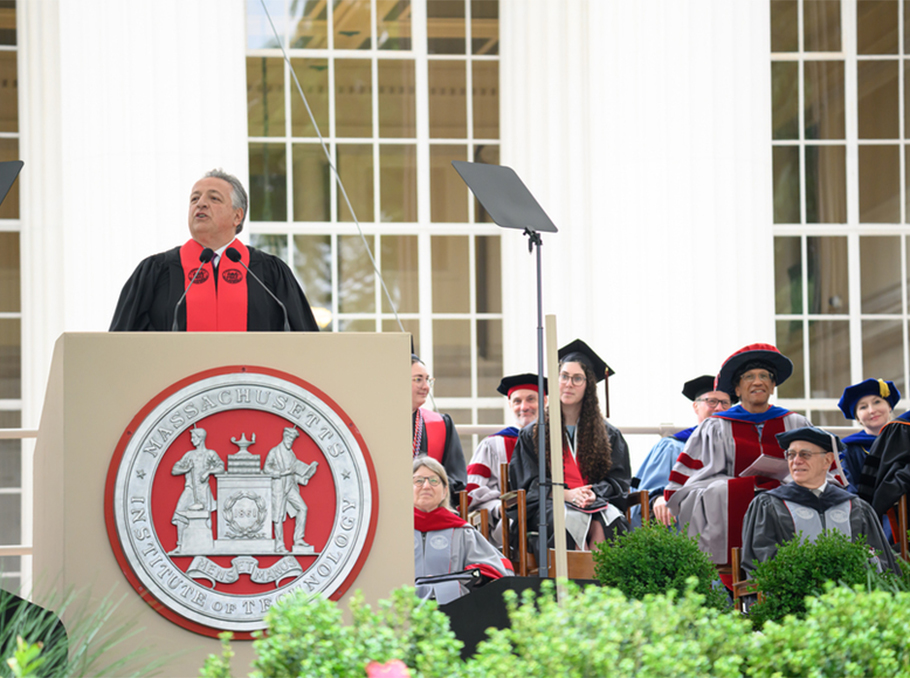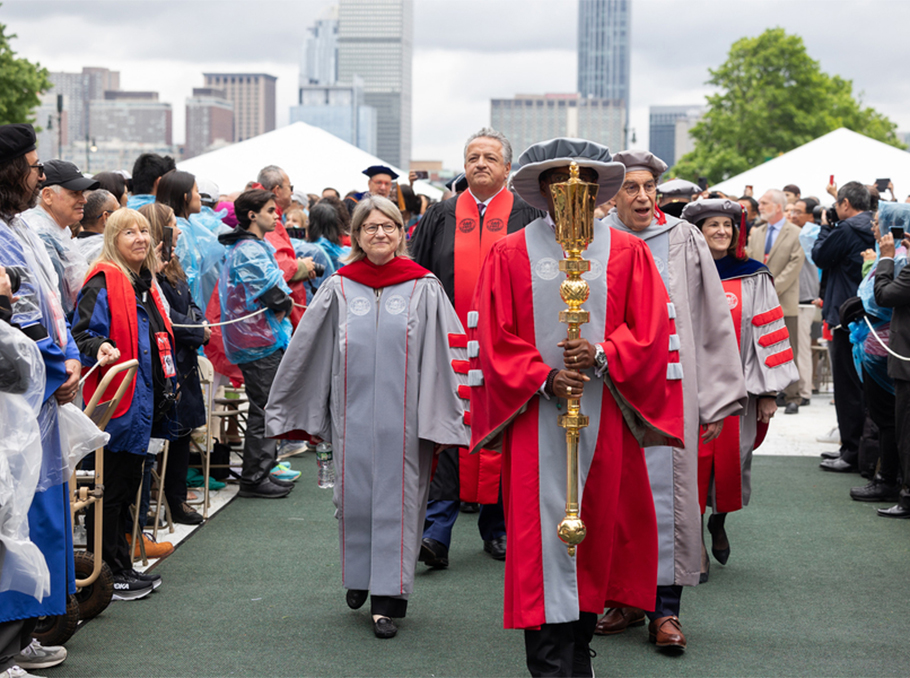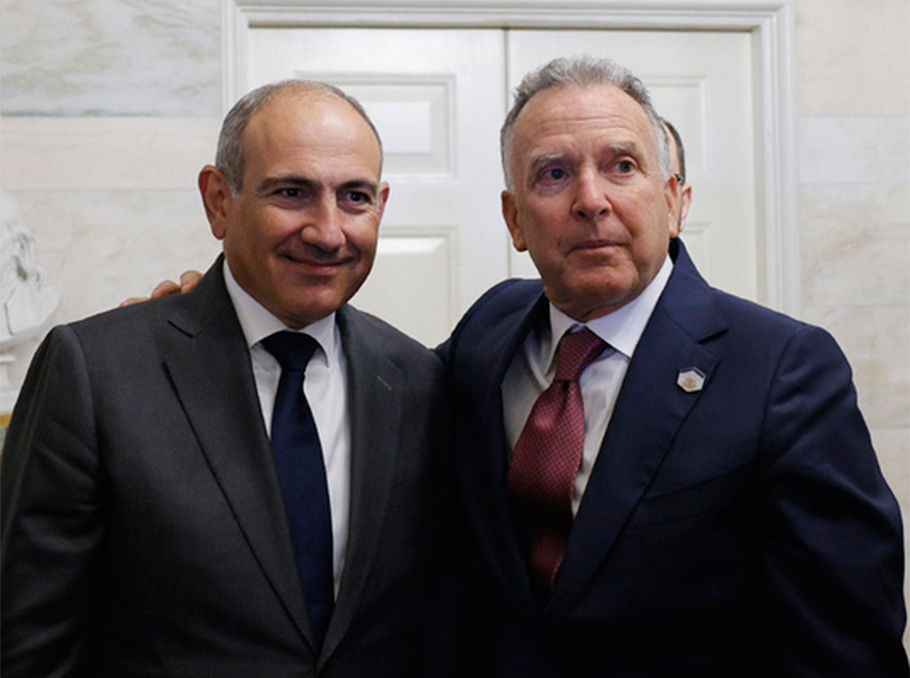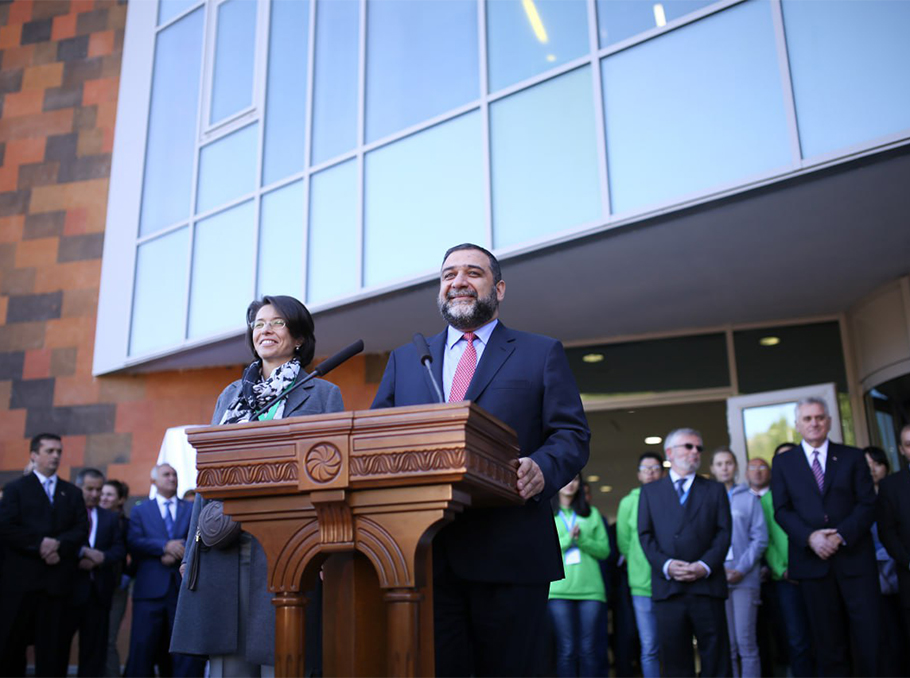Entrepreneur and philanthropist, Co-Founder and Chairman of the Board of Directors of Moderna company, Co-Founder of the Aurora humanitarian initiative Noubar Afeyan delivered a keynote speech at the Commencement ceremony of the Massachusetts Institute of Technology (MIT).
Below are excerpts from the speech.
Mission Impossible
I spent my childhood in Beirut, Lebanon. Three generations of my proud Armenian family shared an apartment on the ninth floor of our building. The window in the bedroom I shared with my great aunt, looked out over the red tiled roofs of Roman, Ottoman, and Byzantine buildings and beyond to the Mediterranean Sea.
When Civil War erupted in 1975, and the government imposed strict curfews, the state broadcaster often shifted from airing three hours of TV a day to offering around-the-clock programming of mostly American television shows, a diversion for my brothers and me when we were forced to stay inside. One show in particular had me captivated. Just hearing the theme song would set my heart racing. Perhaps you know it too - Mission Impossible. Even if you never saw the TV show, you likely know the movies with Tom Cruise as agent Ethan Hunt.
The encoded self-destructing message to the agents always began the same way. Your mission, should you choose to accept it - no matter how long the odds or how great the risk, the agents always took the assignments. In the 50 years since, I have been consistently drawn to impossible missions. And today I hope to convince each and every one of you that you should be too.
Moderna’s vaccine saved over 2 million lives
My colleagues and I at Moderna had received a mission that seemed impossible. Develop a safe and effective vaccine that could save lives, restart the economy, and do so in less than a year. And while you’re at it, get a billion doses manufactured, distribute them around the world, and get them into the arms of people. It was clear that if we accepted this challenge, it would take everything we had. We would have to slow 20 ongoing drug development projects and focus on solving COVID. We embraced this mission. And I’m so proud that my colleague and friend, Professor Langer, is here. He was a main driver of this as well.
Just 48 hours after Moderna obtained the sequence for the SARS-COV-2 S protein, we deployed our mRNA technology to produce a potent vaccine. Less than two months later, we enrolled the first patient in a clinical trial. And on November 16th, the vaccine was determined to be 94.5% effective against COVID-19. By some estimates, Moderna’s vaccine saved over 2 million lives during the pandemic.
Your mission is nothing less than to salvage what seems lost
At a time when the world is beset by crises, your mission is nothing less than to salvage what seems lost, reverse what seems inevitable, and save the planet. And just like the agents in the movies, you need to accept the mission, even if it seems impossible.

Photo: Gretchen Ertl
I know the odds don’t appear to be in your favor. But this age of poly crisis is also a moment of poly opportunity fueled by artificial intelligence, machine learning, quantum computing, and other modern technologies that are changing the world faster than people believe is possible.
Now, you are uniquely equipped to turn science fiction into science reality. With the right mindsets, mission impossible can become mission improbable as you overcome obstacles and seemingly long odds by imagining and innovating your way to novel solutions.
Start by unleashing your imagination
Your MIT education has given you a superpower, like X-ray vision. The telephone, digital circuits, radar, email, internet, the human genome project, controlled drug delivery, magnetic confinement fusion energy, artificial intelligence, and all that is enabling, these and many more breakthroughs emerged from the work of extraordinary change agents tied to MIT.
People often see imagination as the exclusive province of the arts, of movie making, of literature, painting. I think that’s nonsense. Imagination, to my mind, is the foundational building block of breakthrough science. I’m not making an argument against reason. Reason has a role to play. But in accomplishing impossible missions, it’s the servant, not the master. You can’t expect reasoning to do the work of imagination. At its best, scientific research is a profoundly creative endeavor. You have mastered proofs, problem sets, and design projects. But in the words of mathematician and author Lewis Carroll, imagination is the only weapon in the war with reality. To the great Irish writer George Bernard Shaw, its role is even more fundamental. As he put it, imagination is the beginning of creation. You imagine what you desire. You will become what you imagine, and at last, you create what you will.
Ordinary innovations are often judged by how reasonable the idea is and an extension of what already exists and how reasonable the person proposing it is. But ask yourself one central question. Why do we expect extraordinary results from reasonable people doing reasonable things? As you’ve probably guessed by now, I’m utterly unreasonable and an eternal optimist. As a lifelong entrepreneur and innovator, I have to be. But I’ve always practiced a special kind of optimism. I call it paranoid optimism. This means toggling back and forth between extreme optimism and deep seated doubt. The kind of paranoid optimism needed to make scientific or technological leaps often starts with an act of faith. By that, I mean, belief without facts, the very definition of faith.
Faith is generally associated with religion. But interestingly, in my experience, pioneering science also starts with faith. You take leaps of faith, and then you do experiments. And on rare occasions, the experiments work, converting your leap of faith into scientific reality. What a thrill when that happens. On your innovation journey beyond optimism and faith, you will also need the courage of your convictions.
You are far more than technologists. You are moral actors. The choice to maximize solely for profits and power will, in the end, leave you hollow. To forget this is to fail the world, and ultimately, to fail yourself.

Photo: Jake Belcher
I know many of you here and some in the class of 2024 not with us here today are deeply troubled by the conflicts and tragedies we are witnessing. As an Armenian descended from genocide survivors and co-founder of the Aurora humanitarian initiative, I feel deeply the wounds of these conflicts. I wish I had answers for all of us, but of course, I don’t. But I do know this: having conviction should not be confused with having all the answers. Over my many years engaged in entrepreneurship and humanitarian philanthropy, I have learned that there is enormous benefit in questioning what you think you know, listening to people who think differently, and seeking common ground. As you grapple with today’s hard choices and the many that lie ahead, rely again on your imagination. Imagine the world you want to create and work backwards from there.




















Comments
Dear visitors, You can place your opinion on the material using your Facebook account. Please, be polite and follow our simple rules: you are not allowed to make off - topic comments, place advertisements, use abusive and filthy language. The editorial staff reserves the right to moderate and delete comments in case of breach of the rules.